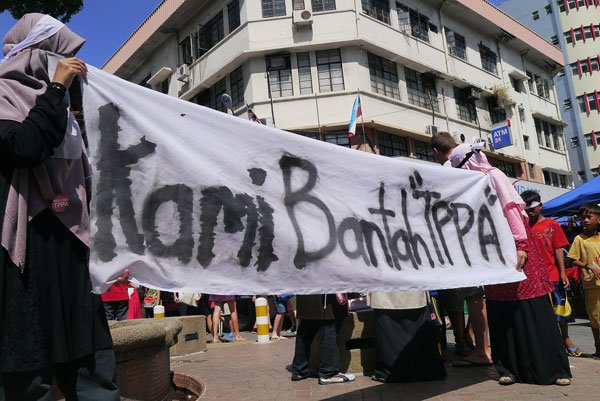’Copyright cops’ activated under TPPA

Berita | 15 December 2015
’Copyright cops’ activated under TPPA
by S Neishasa
PETALING JAYA : Monitoring Sustainability of Globalization(MSN) Policy Researcher Jay Dennis today warned that Malaysians will have zero privacy online once the Trans Pacific Partnership Agreement (TPPA) is signed.
"ISPs (Internet Service Providers) which we now use as a communication medium, can basically spy on anyone with Internet connection, post TPPA" said Jay, alongside DAP Klang MP Charles Santiago at a press meet on TPPA here today.
Jay was referring to Section J of the TPPA’s Intellectual Property (IP) chapter, on ISP safe harbors which requires for Internet providers to filter all Internet communications for potentially copyright-infringing material.
"After joining the TPPA, ISPs are required to create servers to keep e-mails and attachments that go through them, and to expeditiously remove or disable access to material with a copyright claim against it.
"Furthermore, If your data, material or whatever is removed because of a fake claim, you can’t sue any service providers. It is a one way ticket for Internet providers to spy on us while we can’t sue if wronged by them. It gives ISPs too much power," said Jay, while Charles added that this will make ISPs, the "copyright cops".
"Currently Malaysia’s Copyright Act 1987, Section 37 states that a tribunal has to be set up to decide on any copyright infringement. None of this is allowed for in the TPP. The Communications and Multimedia Act 1998 also makes no mention of Internet Service Providers having to store information of users," said Jay.
This section of the TPPA, however states that each party (participating country) shall provide procedures, "whether judicial or administrative", in accordance with the party’s legal system, and consistent with principles of due process and privacy, "that enables a copyright owner" that has made legally sufficient claim of copyright infringement to obtain expeditiously from an Internet Service Provider information in the provider’s possession identifying the "alleged infringer", in cases in which that information is sought for the purpose of protecting or enforcing that copyright.
This essentially means that member countries must create, or tweak existing laws to allow ISPs to expose the infringer’s identity to copyright holders.
The TPPA has been touted as a 21st century trade agreement with the combined trade value of 40% of the global economy and a quarter of the world trade with a total population of 800 million (11.4% of the world population), making the deal currently the largest trading market in the world.
The TPPA is a free trade agreement negotiated between 12 countries, namely Australia, the United States, New Zealand, Canada, Mexico, Peru, Chile, Brunei, Singapore, Japan, Vietnam and Malaysia.





